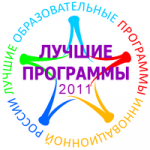|
Conference. Day 4!
Even before the class began in the auditorium of the EMT SFU has no room to swing fall. That's how the third day of the conference "Yenisei political and legal readings" started. On the agenda was discussion of the subject of a private regulation. This topic is highly relevant to people skills relate to the civil and corporate law, as well as for those students who want to test their knowledge and skills in this field in the future. Vladimira V. Dolinskaya 'Professor of the department of civil and family law of the Moscow State Law University (MSLA) of O.E. Kutafin, a member of the Scientific Advisory Board of the Supreme Court of the Russian Federation held a not quite usual lecture forms of employment was more master class, because some questions were addressed directly to the lecturer's audience. Thus obtaining a constructive dialogue. The theme of the dialogue was the relations regulated by civil law (the subject of civil law), in particular: - Relations that arise within the corporation among its members (so-called corporate relations). Lecturer voiced views known jurist on the nature of these relations, in particular the view was expressed by O.A Krasavchikov. - Problems of non-property relations. Proved problematic moments are the function of civil law. Is there a moral regulation of civil rights, or this legal industry only protects the data relationships from possible violations. Vladimira V. together with the students concluded that the presence of protection in Civil Law involves the regulation and non-property relations. - Property relations of statics (related to the finding of material goods from a certain person), as well as the dynamics of the relationships (related to the transfer of wealth from one person to another). In the afternoon students were able to visit the lecture of the Doctor of Law, Professor of criminal proceedings, public prosecutor's supervision and law enforcement Research Tomsk State University, deputy director of the Law Institute of Tomsk State University, Honored Lawyer of Russian Federation, Honored Solicitor of Russian Federation, Honored Worker of Higher Education of the Russian Federation Yuri K. Jakimovich . The theme of the lectures were marked with some topical issues of criminal proceedings in Russia. Professor allocated features of criminal procedural law in Russia, which is significantly different from the rest of the industry: - Criminal Procedural Law serves primarily an auxiliary role to the criminal substantive law. - Criminal Procedural Law has its own sources, among them the famous Constitution, the Criminal Procedure Code (according to the authoritative opinion of George Roerich Russian Code meets all recognized international standards, and in many ways superior to their foreign "colleagues"), as well as federal legislation. The absence of legislation in the hierarchy of subjects lecturer caused by the fact that Russia is in fact a unitary state. - Criminal procedural norm consists of two parts: a hypothesis and disposition. The sanction, in turn, is contained in other legal sectors. Because of the problems voiced in the lectures, the most important were: The problem of congestion of courts of general jurisdiction (unfortunately, a tendency to this phenomenon, according to the lecturer, rises). Also, the difficulties associated with the "deaf" legislator, do not listen to the people for whom they are made law. (The case was voiced by Yuri Yakovlevich Chaika associated with the office of the Investigative Committee of the Prosecutor's Office) This was followed by a brief history of the domestic criminal procedural law, and then a comparison of the domestic soft starter with foreign counterparts. Parallel to the lectures within the Yenisei political and legal readings in the auditorium of the UI SFU (ul. Lenina, 70) held a round table on "Antitrust regulation in Russia 25 years: legal practice and development trends." It was attended by about 30 participants, including deputy chairman of the Legislative Assembly of the Krasnoyarsk Territory VN Sevastyanov and two professors, a major area of research which are economic crimes. Declared their participation and special guests from Norilsk (Company "Norilsk Nickel") and St. Petersburg. Active participants of the round table were employees of FAS in the Krasnoyarsk Territory, and representatives of public organization "Support of Russia". The moderators of the round table were our guest from Moscow - Head of Cartel FAS Russia (SFU Law Institute graduate) Tenishev A.P and Deputy Head of the Federal Antimonopoly Service of the Krasnoyarsk Territory E.L Luzhbin. Been to Round Table and the students of Law Institute of SFU. More than five hours with passion participants discussed topical issues of antimonopoly legislation: revision of the criminal law on cartels, the history of antitrust laws in Europe and comparing it with the modern, the illegality of non-compete agreements, and addressed issues of comparative law: antitrust law in Russia and Europe. It was interesting to learn that the first legal acts were adopted not in the US, and Russia ... One of the participants of the round table was a Doctor of Law, Professor, Head of the commercial, business and financial law SFU Law Institute I.V. Shyshko. In her speech, she said, some criminal and legal assessment can get many violations of the Federal Law "On Protection of Competition". |


